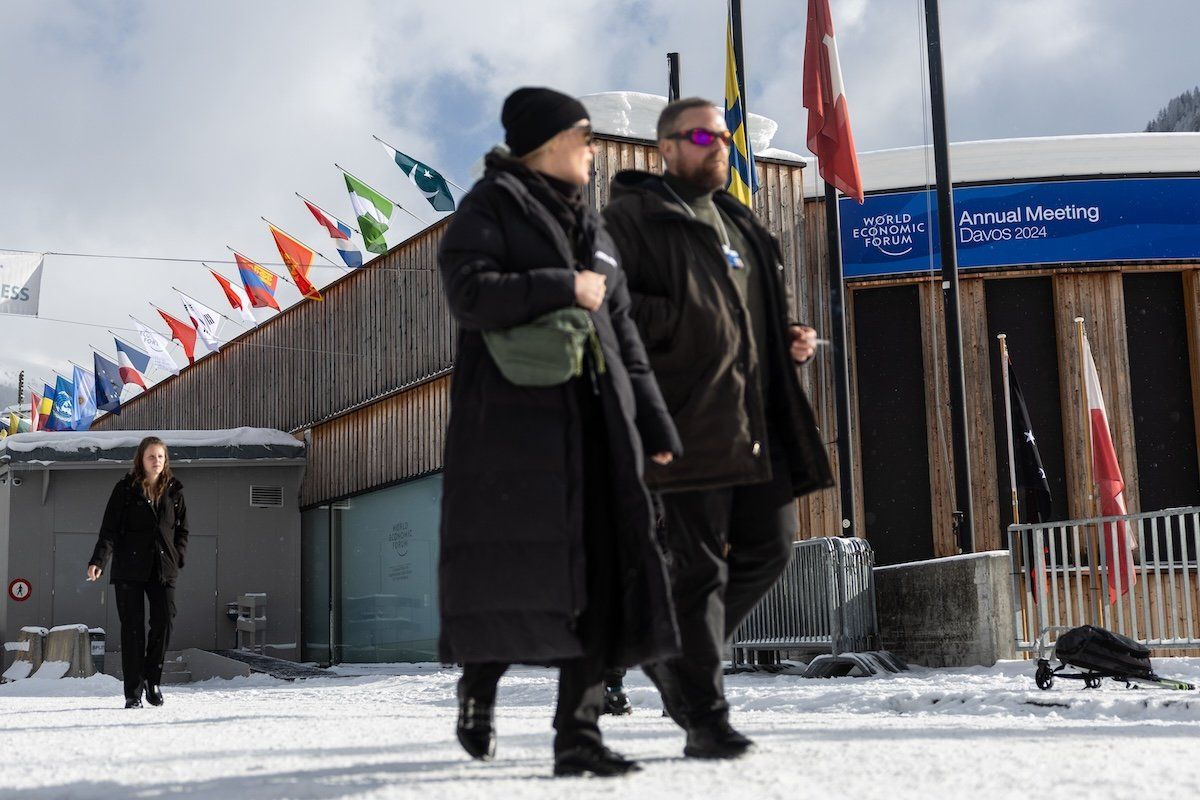Hard Numbers: Women attendees in Davos, Talks on peace in Ukraine, Taxing extreme wealth, Rebuilding homes in Gaza
January 19, 2024
A man and woman walk in front of the World Economic Forum Convention Center in Davos, Switzerland.
Hannes P. Albert/dpa via Reuters
28: A little over a quarter (28%) of attendees at the World Economic Forum in Davos this year were women (roughly 800 in total). That's up from 15% a decade ago, but it's clear the annual conference is still overwhelmingly attended by men.
80: The ongoing war in Ukraine, which is nearly two years old, was a big topic in Davos this year. National security advisors from over 80 countries gathered in the Alpine ski town before the summit officially kicked off to discuss Kyiv's 10-point peace plan. Moscow has clearly been paying attention and dismissed meetings on Ukraine's peace formula as "pointless."
250: Over 250 millionaires and billionaires, including Disney heir Abigail Disney, lent their signatures to an open letter addressed to political leaders gathered in Davos, calling on them to do more to tax extreme wealth. "Our request is simple: We ask you to tax us, the very richest in society," the letter said.
15,000,000,000: The cost of rebuilding houses in Gaza will be at least $15 billion, the head of the Palestine Investment Fund said in Davos, as the Israel-Hamas war wreaks havoc on infrastructure across the coastal enclave. Chairman Mohammed Mustafa said it's estimated that around 350,000 housing units in Gaza have been completely or partially destroyed so far.